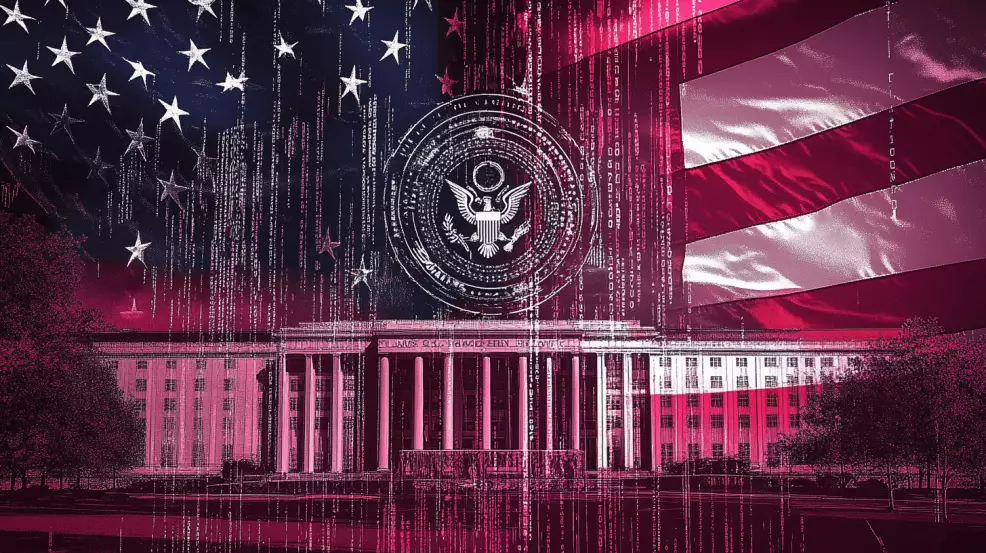The landscape of military cybersecurity is undergoing a dramatic transformation as the Department of Defense (DoD) embraces generative AI. A groundbreaking move was marked by the award of the first generative AI defense contract to Jericho Security, a pioneering startup based in New York. This $1.8 million contract, falling under the Small Business Technology Transfer (STTR) Phase II program, signifies a profound shift in how the military approaches not just cybersecurity but the ever-growing threats in the digital environment.
The announcement of this contract by AFWERX, the Air Force’s innovation arm, has stirred excitement in the defense community. It underscores the seriousness with which military officials view the integration of advanced technologies like AI to counteract modern threats. Sage Wohns, CEO of Jericho Security, emphasized the significance of this milestone, marking it as one of the first instances of generative AI being utilized for national defense. Such an approach not only highlights a forward-thinking strategy but also sets a precedent for future contracts within the defense sector.
Jericho Security’s innovative methodology focuses on weaponizing generative AI to simulate complex phishing attacks that mimic real-life scenarios. Unlike conventional phishing, which primarily relies on email, the new wave of threats is multi-faceted, utilizing text, phone calls, and even video communications to form intricate networks of deceit. Wohns elaborated on how these coordinated attacks pose significant challenges, making it essential for cybersecurity protocols to evolve in tandem.
What distinguishes Jericho Security from its competitors is its recognition of human vulnerability in cybersecurity. Most cybersecurity breaches are attributable to human error, which accounts for approximately 95% according to industry reports. By creating tailored security programs based on individual risk profiles, the company utilizes generative AI to simulate increasingly sophisticated threats, including harmful deepfake impersonations and AI-generated malware designed to be indistinguishable from genuine sources.
The Imperative of Advanced Training
The timing of Jericho’s contract could not be more critical. Recent incidents, such as a notable spear-phishing attack on Air Force drone pilots involving counterfeit user manuals, have demonstrated the escalating risks faced by military personnel. Wohns shared insights on how Jericho’s approach not only identifies vulnerabilities through simulations but also educates personnel through specialized training programs tailored to mitigate these risks. This proactive method is essential in ensuring that the military is not merely reactive to cyber threats but develops a robust defense by pre-emptively addressing human vulnerabilities.
For Jericho Security, securing a Department of Defense contract is not merely a feather in their cap; it serves as a vital validation in a competitive cybersecurity arena. The contract opens doors for the startup to expand its foothold from commercial services into the lucrative domain of government contracts, an industry increasingly aware of the critical need for advanced cybersecurity measures in the face of growing digital threats.
Meeting the stringent security requirements typical of military ventures, Jericho emphasizes its commitment to military-grade cybersecurity standards. These include rigorous end-to-end encryption protocols and the establishment of isolated environments for processing sensitive data, ensuring that the safety of military operations is uncompromised.
Breaking away from traditional cybersecurity modalities that react to already recognized threats, Jericho adopts a “predator and prey” model. Wohns elaborated on their dual approach, starting with attack simulations to acquire real-time data which continuously informs both offensive and defensive strategies. This innovative tactic allows their systems to advance alongside ongoing threats rather than simply responding to them after breaches occur.
The contract awarded through AFWERX illustrates a broader initiative aimed at enhancing military integration of cutting-edge private sector technologies. Since its inception, AFWERX has allocated over $4.7 billion to more than 6,200 contracts, demonstrating a significant commitment to reinforcing the U.S. defense landscape through dynamic, forward-thinking solutions.
The collaboration between Jericho Security and the Department of the Air Force is emblematic of a necessary evolution in military cybersecurity practices. By harnessing the power of generative AI to simulate and prepare for evolving cyber threats, it not only better equips military personnel against potential breaches but also sets a standard for future advancements in the realm of defense technology. As the military embraces these innovative solutions, the landscape for cybersecurity is poised for unprecedented change.

